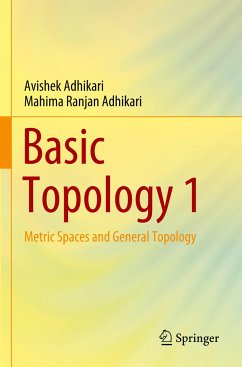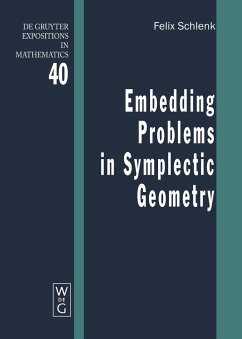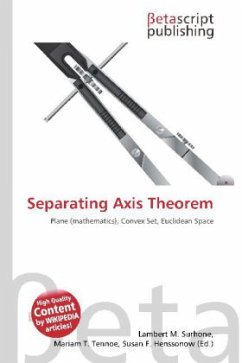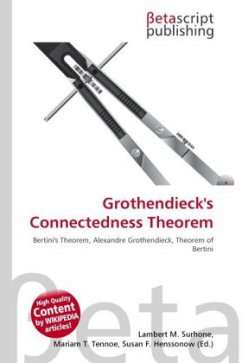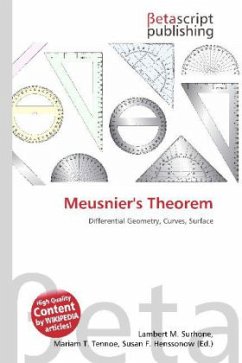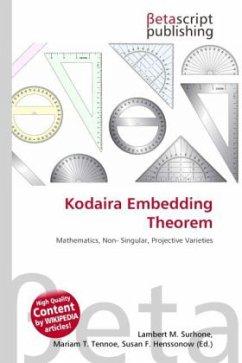
Kodaira Embedding Theorem
Versandkostenfrei!
Versandfertig in 6-10 Tagen
23,99 €
inkl. MwSt.

PAYBACK Punkte
12 °P sammeln!
High Quality Content by WIKIPEDIA articles! In mathematics, the Kodaira embedding theorem characterises non-singular projective varieties, over the complex numbers, amongst compact Kähler manifolds. In effect it says precisely which complex manifolds are defined by homogeneous polynomials. Kunihiko Kodaira's result is that for a compact Kähler manifold M, with a Hodge metric, meaning that the cohomology class in degree 2 defined by the Kähler form is an integral cohomology class, there is a complex-analytic embedding of M into complex projective space of some high enough dimension N. The fa...
High Quality Content by WIKIPEDIA articles! In mathematics, the Kodaira embedding theorem characterises non-singular projective varieties, over the complex numbers, amongst compact Kähler manifolds. In effect it says precisely which complex manifolds are defined by homogeneous polynomials. Kunihiko Kodaira's result is that for a compact Kähler manifold M, with a Hodge metric, meaning that the cohomology class in degree 2 defined by the Kähler form is an integral cohomology class, there is a complex-analytic embedding of M into complex projective space of some high enough dimension N. The fact that M embeds as an algebraic variety follows by its compactness from Chow's theorem. A Kahler manifold with a Hodge metric is occasionally called a Hodge manifold (named after W. V. D. Hodge), so Kodaira's results states that Hodge manifolds are projective. The converse that projective manifolds are Hodge manifolds is more elementary and was already known.






